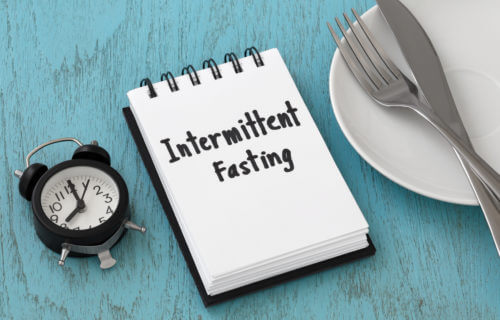BATON ROUGE, La. — More and more people are trying intermittent fasting to lose weight. For many people, time-restricted eating patterns work better than counting calories or trying to stick to a specific menu. Now, a new animal study suggests that intermittent fasting slows aging and helps promote longevity. With that in mind, researchers are looking to see if the same thing happens with humans.
“We have known for almost a hundred years that eating less extends an animal’s healthspan and lifespan,” says Dr. Corby Martin, Professor and Director of LSU’s Ingestive Behavior, Weight Management and Health Promotion Laboratory at Pennington Biomedical, in a media release. “Although eating less also slows aging in humans, it can be difficult to follow. Recently, however, studies have shown that intermittent fasting affects aging in a similar way in animals. Since intermittent fasting may be easier to follow than calorie counting, we are excited to see if intermittent fasting may be an easier way to become healthy and slow the aging process.”
In light of this, researchers at the Pennington Biomedical Research Center and the University of Alabama at Birmingham are conducting a study to see if eating for eight hours and fasting for 16 hours every day can slow aging in people. Dr. Leanne Redman, another study leader and director of Pennington Biomedical’s Reproductive Endocrinology and Women’s Health Laboratory, says that the study stands out as “it will use newly developed smartphone apps to help people stick with the program with minimal support from health coaches.”

Currently, the trial is open and actively recruiting participants in Baton Rouge, Louisiana, and Birmingham, Alabama. To qualify, participants should be between the ages of 25 and 49 and have a body mass index between 22 and 30. They should not smoke, vape, or use tobacco products currently or within the last six months.
Interestingly, this study largely includes people considered to have a normal to overweight BMI, only including the lower end of what is considered obese per BMI standards (30+). This provides an opportunity for a different demographic to be represented in a study like this. Participants will be compensated up to $2,500 for completing the study.
“Obesity is one of the most prevalent and deadly diseases nationally,” says Dr. John Kirwan, Executive Director of Pennington Biomedical Research Center. “This study is an important contribution to our understanding of how intermittent fasting can help individuals to lose or maintain weight.”
For those interested in participating in the Baton Rouge trial, you can call 225-763-3000, email [email protected], or visit their research trials website. People interested in participating in the trial in Birmingham can apply online.
You might also be interested in:
- Intermittent fasting shows signs of preventing Alzheimer’s disease
- Healthy dieting can be just as good for seniors as taking 4,000 steps
- Eat better, live longer? Scientists uncover link between eating protein and aging

